Growing up, my dad always told me that sometimes we have to make people do their job. He didn’t tell me how often I would have to lead those conversations as a woman of color.
I’m hyperaware and hyper-vigilant over my identity. Beyond having a B.A in Anthropology/Sociology, my life experiences have taught me what it means to be a woman of color in different spaces and the labor associated with each. I’m aware that I’ll always have to do twice the amount of work to get half as much as women who aren’t of color. I’m aware that I’m expected to give twice the amount of forgiveness to individuals learning to acknowledge and respect the reality of my lived experience, how it plays out in relationships and spaces, and how society sees me (or doesn’t). I’m aware that allowing myself to experience the full spectrum of emotions comes with a stigma society perpetuates.
In my counseling sessions, I’ve talked a lot about compassion and grace and wanting to experience this dynamic duo daily. After recent experiences and conversations, I’m reminded that my struggle with compassion and grace isn’t solely individual. It’s communal. My identity as a woman of color has conditioned me (alongside personal experiences and trauma) that compassion and grace are to be doled out by me. An article by Girls United said it best: “women of color are expected to be continuously gracious, empathetic, and educators, and after we’ve spent time speaking out for communities and being an empathetic, social barometer, we don’t get any reprieve because now we’re a caricature.”
My first experience with these expectations associated with my identity began in elementary school. I, the only girl of color in my class, was expected to show forgiveness, compassion, and grace to the same girls who bullied me for years. I was expected to forgive them because it was what Jesus would do (sidenote: Jesus forgave, but he also held people accountable). I was expected to let comments about my hair roll off my shoulders because it was just girls being girls. I was told to “grow up” and stop crying. But when I hurt one of the girl’s feelings after she picked on me all of art class, I had to miss recess to write her an apology letter. I NEVER got an apology letter from 1st grade - until I graduated from middle school. Instead, I was always expected to practice compassion, grace, and forgiveness, becoming a caricature they designed and conditioned.
Despite being 24 now, there’s still trauma associated with being bullied in my childhood. Thankfully, that trauma is no longer associated with my identity. But still, I find myself still operating under the expectations associated with being a woman of color because of the spaces I’ve occupied since my early childhood and the experiences I’ve had.
More recently, I’ve found myself stuck between how I wanted to respond and how I had to respond out of fear of the tropes that would be associated with my character because I, a woman of color, decided to advocate for myself. These experiences came out in counseling as I talked through the frustration of having to think twice about my response constantly. As a woman of color (THANK GOD FOR COUNSELORS OF COLOR), she understood. As my counselor, she had me journal about what was triggering and what I wish I really could have said. I knew what she was doing… she was helping me regain my power and creating space to experience the spectrum of emotions connected to the experience.
Walking away from the journal entries, the Anthropologist/Sociologist in me thought, “how do I help create space for women of color to keep their stakes and perspectives in this ongoing conversation?” “How do I learn from other women that could influence my own perspective on grace and compassion?”
I texted several friends a couple of questions and told them it would be shared in one of my newsletters this month. As an ode to women's history, I wanted to create space for us.
What does grace mean to you as a woman of color?
“As a woman of color, grace for me means to be able to come from a place of understanding rather than a place of scrutiny and high expectations. I feel as though people are so critical of us while we’re growing up that we internalize that and become critical of ourselves and those around us.”
“To me, that means forgiving myself/stop being so hard on myself. Taking the time to celebrate my wins, whatever they may be, big or small, and taking time for myself. Breathing. Reflecting. Resting.”
“As a Black woman, I try to move throughout spaces being authentic to myself and my values. That is how I show myself grace. Being true to who I am and not compromising myself for anyone or anything.”
“Grace commonly refers to a sense of propriety and consideration for others. But in regards to self, I show myself consideration and kindness by standing up for myself when or pushing back on feedback at work that directly aligns with my identity.”
How do you show yourself compassion in challenging moments that make you hyperaware of your identity as a woman of color?
“I take a step back to look at the bigger picture, and even then, remind myself that you cannot learn unless you make mistakes and that mistakes are okay.”
“When I’m in spaces that make me hyper-aware of my identity, I show myself compassion by not internalizing my surroundings. I remind myself that I belong here no matter what others say or think. Despite people’s bias and ignorance, I make sure to not let it shrink how I view myself. My parents have instilled in me the confidence I have today to walk in a room with a sense of grace and assurance. For that, I’m most thankful.”
I’m thankful for the inspiring, resilient women of color I am surrounded by. After growing up in predominantly white spaces my entire life and realizing I’ll never be enough for the people in the space because of my skin color or hair color, I learned to seek out women who looked like me in college. During my freshman year, I was placed in an advising circle exclusively for women of color. And although I was only close with the professor leading the group, the senior mentoring the group, and one other student (she has taught me so much about plutonic relationships), I understood clearly the need to have women of color in my life who see me.
These same women taught me how to show up in my identity unashamed. They helped me own my story as a woman of color and tell it unapologetically. They modeled the importance of self-love every day. They demonstrated the importance of celebrating other women.
There’s something inherently understood by the women of color in my life. I can’t name it because it’s a feeling. A feeling of safety, bravery, and vulnerability. An anomaly of dialectics.
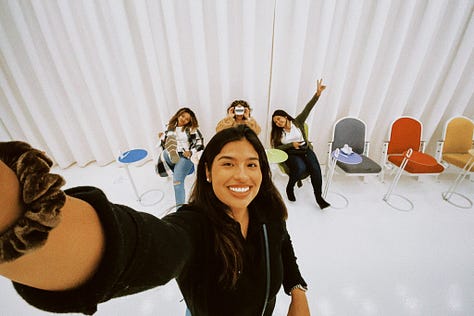
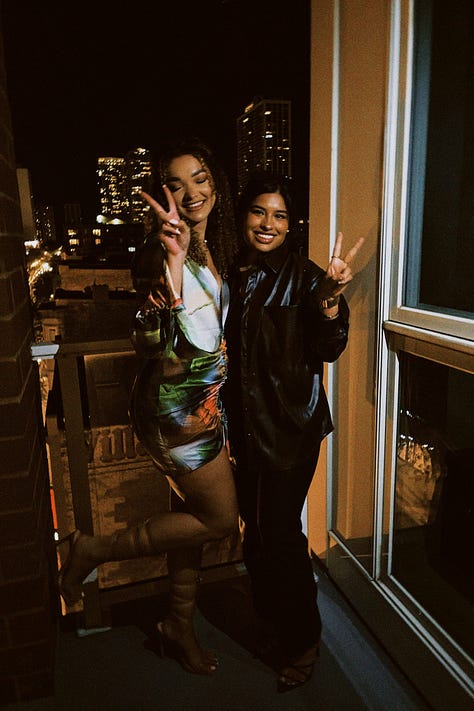
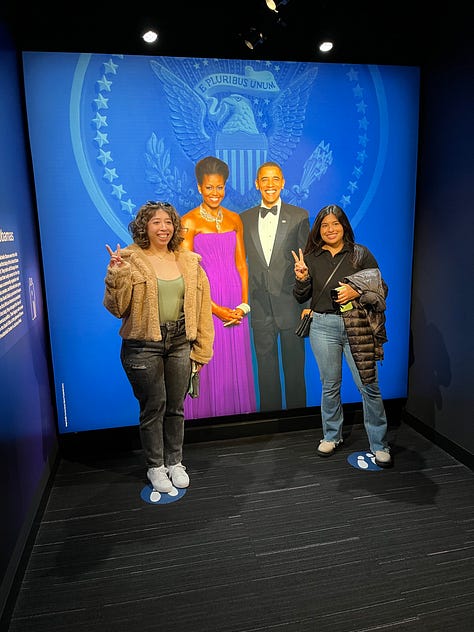

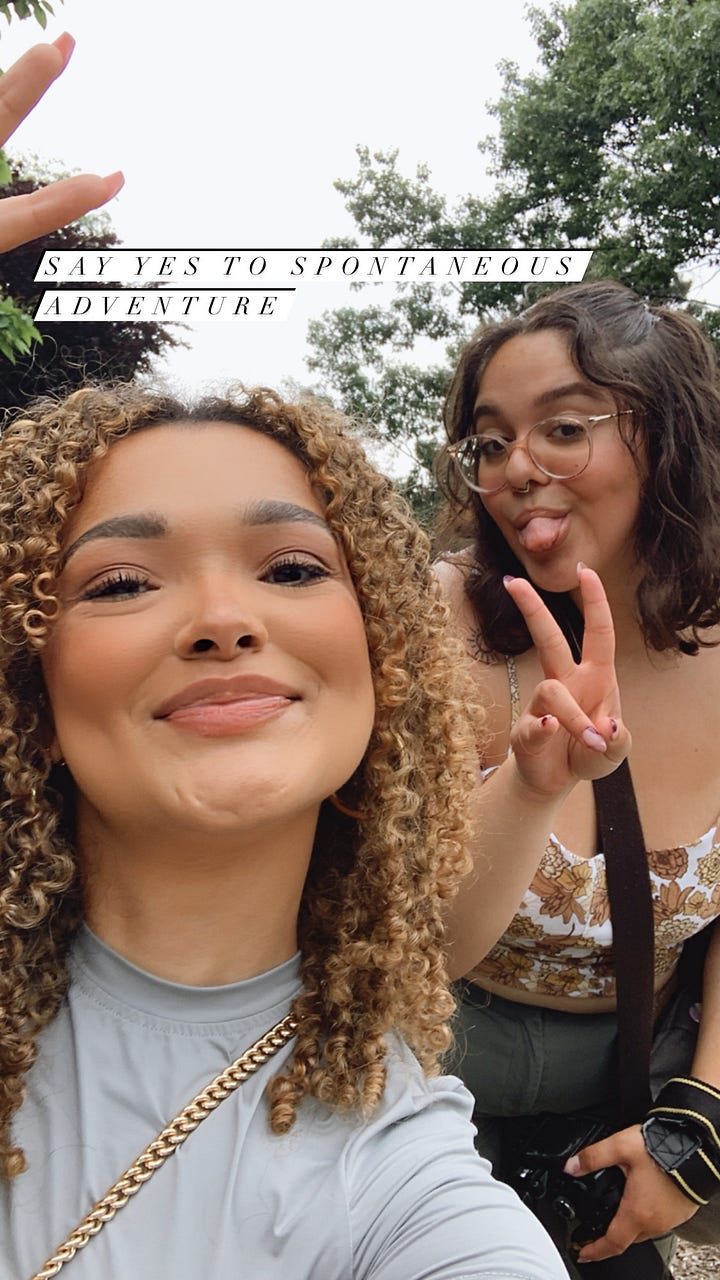

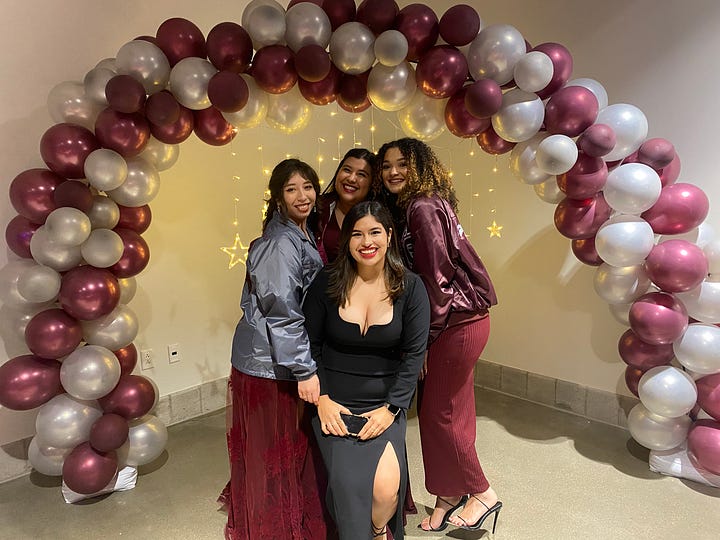
To the women of color in my life, thank you for creating space for all of me. I see you, just as you see me…
I see you trying…
Exhaustingly
To be more than
What people say we can be
And less of what
They say we’ll be
My hope for you and for me
Is that you’ll encounter the sweet drips
Of compassion and empathy
More than we have historically



